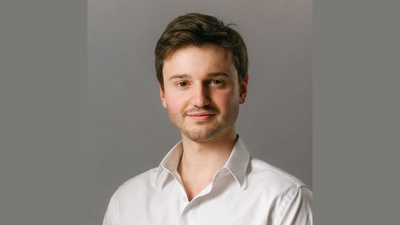ARTICLE AD BOX

During his second year at Georgetown University, Brendan Foody made a choice that would change his path. While many of his classmates focused on completing their exams, he chose to step away from college altogether.
Alongside two high school friends, he began developing an idea that aimed to bridge human expertise and artificial intelligence. That concept grew into Mercor, a company now building technology that matches skilled workers with enterprise projects and teaches AI systems to mirror professional reasoning.Two years later, the company’s valuation reached $10 billion, making Foody and his co-founders among the youngest billionaires in tech. As Fortune reported in an interview, Foody “knew he wanted to drop out before finals” and simply “didn’t go to finals.”
His leap from student to founder reflects how young entrepreneurs are reimagining education, work, and value creation in the age of AI.
Leaving Georgetown for a startup idea
Foody enrolled at Georgetown University in 2021 to study business administration and economics. By his second year, however, he found himself more drawn to building than studying. Together with Adarsh Hiremath and Surya Midha, his former high school debate teammates, Foody began experimenting with ways to connect companies with remote engineers abroad.
At first, it was a straightforward talent platform: firms paid a fixed rate for developers, and Mercor handled contracts and logistics. But the founders quickly realised the system could serve a larger purpose. The same structure that helped match human talent could also help evaluate and train AI models, using human expertise as feedback.
Turning Mercor into a human-AI training hub
Mercor evolved into a platform that brings together professionals—lawyers, consultants, analysts, and doctors—to test and grade the performance of AI systems on real-world tasks. As Fortune explained, Mercor’s evaluators create “rubrics that test and refine models’ reasoning,” providing detailed insights into how well machines mimic human judgment.Every completed task improves both sides of the network: companies get more reliable AI tools, and evaluators contribute to shaping smarter systems. Within nine months of launch, Mercor had reached a $1 million revenue run rate. Two years later, its model placed it at the center of the AI economy, with global investors backing its approach to human-in-the-loop automation.
The APEX benchmark
One of Mercor’s major developments is the AI Productivity Index (APEX), a proprietary benchmark that measures how effectively AI performs economically valuable work.
Instead of testing models on logic puzzles or general reasoning, APEX evaluates their ability to complete professional assignments—writing a financial memo, analysing a legal case, or reviewing a medical chart.To ensure the framework mirrors real professional standards, Mercor collaborated with an advisory group that includes Larry Summers, Dominic Barton, Cass Sunstein, and Eric Topol, as first reported by Fortune. Each expert helped design realistic rubrics to assess the quality of AI outputs in their respective fields.
Before Mercor: Early ventures and the Thiel Fellowship
Foody’s path to Mercor included two earlier ventures. In 2020, he founded Stealth, a cloud consulting business that optimised AWS promotions, helping companies cut infrastructure costs. Later, he launched Seros, a project aimed at improving access to cloud computing globally.His unconventional path and early success led to his selection as a Thiel Fellow in 2024, a program run by Thiel Capital that supports young founders who build companies instead of completing college degrees.
How Foody views work and AI
For Foody, work is no longer something that requires discipline but something that drives him. “When I was in college, work was something I had to be disciplined to do,” he told Fortune. “When I started Mercor, it became something I couldn’t stop thinking about.”He believes burnout happens when people spend time on tasks that don’t feel meaningful. “People burn out when they work hard on things that don’t feel compounding,” he said.
“I see the ROI of my time every day.”This view has shaped Mercor’s philosophy. The company sees AI not as a replacement for labor but as a way to reallocate it—moving people from repetitive work to roles that teach AI systems how to reason and make decisions. As Foody told Fortune, “Everyone’s been focused on what models can do. But the real opportunity is teaching them what only humans know—judgment, nuance, and taste.”
The takeaway
Today, Mercor operates as both a technology company and a global labor marketplace. Each project generates data that improves future AI performance, creating a feedback loop that strengthens both human and machine capabilities.Foody often frames this as a natural shift. He believes that, just as earlier revolutions reduced the share of agricultural or industrial jobs, the rise of AI will push people toward more analytical and creative work. “The challenge,” he told Fortune, “is to be thoughtful about what comes next—the higher, better things humans will spend time on.”At 23, Foody’s story is less about leaving college and more about redefining how work, learning, and innovation can overlap. What started as an idea at a hackathon has turned into a company that is quietly reshaping how the world teaches machines to think.

 1 hour ago
5
1 hour ago
5








 English (US) ·
English (US) ·